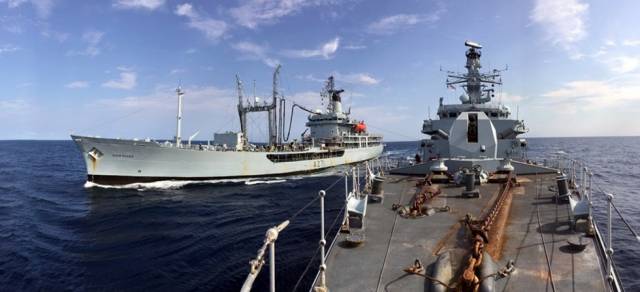#RFAoiler - The oldest of the UK’s Royal Fleet Auxiliary tankers a ‘Rover’ class which made a rare visit to Dublin Port in recent years, was officially decommissioned last month, writes Jehan Ashmore.
RFA Gold Rover (A271) a 11,522 tonnes single hull displacement tanker was a rare visitor to an Irish port given the 'oiler' was a part of the Royal Fleet Auxiliary and not the Royal Navy. The RFA have a civilian-manned fleet which provides support for warships, assiting the Royal Navy to maintain operations around the world.
Almost a year ago RFA Gold Rover arrived offshore of St. Helena on Friday 20 May for the crew to enjoy the St Helena’s Day celebrations.
The veteran RFA Gold Rover was built by Swan Hunter, Newcastle Upon Tyne in 1974 as the leadship of five sisters. She served replenishment at sea (RAS) duties to the Royal Navy during global operations. Currently the tanker is along with a sister, Black Rover which according to Ships Monthly, is berthed in Birkenhead while awaiting scrapping.
Not only are the 'Rover' class disposed but also the ageing 'Leaf' class single-hulled tankers. They are to be replaced by new 'Tide' class newbuilds on order from a shipyard in the Far East. According to the Royal Navy, the first of the new support ships, RFA Tidespring has arrived in UK waters as the first of the quartet of ‘Tide’ class tankers.
The 39,000-tonne tanker which also has a 19,000 cubic metres capacity for fuel and 1,300 cubic metres of fresh water will not enter service immediately. Instead, RFA Tidespring will undergo further intensive work and customisation programme at A&P Falmouth.
RFA Tidespring is expected to enter service before the end of the year. The new class will provide key support to ‘Queen Elizabeth’ Class carriers when they too come into service, alongside the wider fleet.
































































